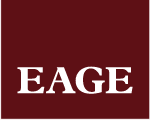Workshops
The EAGE Annual includes interactive one-day workshops, providing participants with the opportunity to gain new skills, new insights and the new knowledge that is key to developing your academic or professional profile. With a fascinating range of topical and relevant workshops to choose from, you are sure to find a programme that suits your needs.
Sunday 7 June 2026
Workshop 1
Leveraging Multicomponent OBN Acquisitions for Improved PP-PS Imaging and Inversion
Leveraging Multicomponent OBN Acquisitions for Improved PP-PS Imaging and Inversion
While OBN acquisitions have clearly contributed to superior P-wave imaging compared to streamer data, leveraging the recorded converted waves remains more challenging. In this context, we explore the opportunities and recent advancements in converted-wave imaging, particularly when integrated with P-wave data. Our objective is to review key elements of this workflow—from wavefield separation, denoising, and picking, to imaging, tomography, full-waveform inversion, and stratigraphic inversion. These methodologies will be illustrated through a series of case studies, highlighting the added value of converted waves when combined with P waves to enhance subsurface characterization and improve imaging in complex geological environments.
Workshop 2
AI Agents
AI Agents
Agentic AI systems—autonomous, goal-driven agents integrating perception, reasoning, memory, and action—are reshaping AI deployment. They enable automation, adaptive decision-making, and continuous problem-solving but raise governance, security, and alignment challenges. This workshop unites experts to share insights, assess risks, and develop best practices for responsible, scalable adoption of agentic AI across domains.
Workshop 3
Maximizing Subsurface Recovery: From Hydrocarbons to Energy Storage for a Sustainable Energy Future
Maximizing Subsurface Recovery: From Hydrocarbons to Energy Storage for a Sustainable Energy Future
This workshop explores how integrated subsurface characterization and engineering strategies enhance recovery and performance across hydrocarbons, EOR, geothermal, and energy storage. Focusing on efficiency, sustainability, and innovation, it highlights advancements in geoscience, modeling, and monitoring, featuring industry and academic case studies that support a low-carbon, resilient energy future.
Workshop 4
Survey, Site Investigation, and Seismic Safety Forum
Survey, Site Investigation, and Seismic Safety Forum
The safety forum provides a space to reflect and discuss current safety performance and challenges faced within the seismic and site investigation acquisition areas. This is a continuation of the safety forum hosted by bp in 2022, 2023 and 2024. The forum is open to all seismic and site investigation contractors and operators who contract for these services and front line personnel. The goal is to have a constructive discussion to share issues and identify opportunities to improve safety performance.
Workshop 5
Sampling at the philosophical crossroads: acquisition density, sparsity, and wavefield reconstruction
Sampling at the philosophical crossroads: acquisition density, sparsity, and wavefield reconstruction
Wavefield sampling may face a crossroads: denser acquisition yields better images, but at a high cost with current equipment and operations. This workshop will review the benefits of improved sampling and existing challenges, while also discussing the potential of alternative sampling strategies, different measurements, and advanced wavefield reconstruction for high-quality data.
Workshop 6
UK's Offshore Decarbonisation Strategies: A Multidimensional Exploration Across Space and Time Through Mapping and Cognitive Frameworks
UK's Offshore Decarbonisation Strategies: A Multidimensional Exploration Across Space and Time Through Mapping and Cognitive Frameworks
This workshop offers a multidimensional look at the UK’s offshore decarbonisation landscape, exploring how wind, CCS, hydrogen, and infrastructure reuse interact in shared marine spaces.
Through participatory and cognitive mapping, and group dialogue, participants gain tools to analyse overlaps, identify synergies, and address risks, fostering cross-sector understanding and integrated transition strategies.
Workshop 7
Open for Energy: Open Source, Open Data, Open Models
Open for Energy: Open Source, Open Data, Open Models
Open code, open data, and open content have been growing exponentially in relevance and impact. Today’s digital landscape, scientific reproducibility, and AI could not exist without it; we all depend on it. We ask, “What have we achieved, and how can openness have maximum business and scientific impact in this community?”
Workshop 22
The Geology of the North Sea in a Single Day
The Geology of the North Sea in a Single Day
The North Sea is one of the most diverse petroleum basins in the world. At the end of this workshop, you will be able to testify this; cores from a wide variety of classic reservoirs will be on display, not only showcasing their reservoir potential, but also painting a picture that allows you to better understand the geological evolution of this fascinating basin.
Monday 8 June 2026
Workshop 8
Reflectivity: Why do we still need it when inverting for velocity?
Reflectivity: Why do we still need it when inverting for velocity?
Full waveform migration has historically ignored reflectivity, which seems natural as reflectivity, which is essential to the one-way wave equation, doesn’t appear in the two-way wave-equation. However, several approaches have emerged introducing a reflectivity into the two-way formulation. This workshop attempts to explain this by comparing different approaches.
Workshop 9
Passive seismic interferometry, a key geophysical method for geological resources exploration and management
Passive seismic interferometry, a key geophysical method for geological resources exploration and management
Learn how passive seismic interferometry is revolutionizing subsurface insight—delivering cost-effective, continuous monitoring and characterization of the subsurface. This workshop bridges innovation and application, showcasing the latest advances that bring value to today’s geoscience challenges.
Workshop 10
Scale Matters! Multiscale Perspectives on Geohazard and Engineering Constraints across the Renewable Industry
Scale Matters! Multiscale Perspectives on Geohazard and Engineering Constraints across the Renewable Industry
The energy transition has led to a change in scale and scope of engineering projects. Shallow geohazard risk assessments are critical for ensuring the safety and efficiency of renewable energy and infrastructure projects. This workshop will look at geohazards and engineering constraints across the project life cycle.
Workshop 11
Exploring the limits of gas saturation measurement using seismic data
Exploring the limits of gas saturation measurement using seismic data
It is well known that seismic data is frustratingly insensitive to gas saturation, limiting our ability to distinguish residual from commercial accumulations. In this workshop, we will use real and synthetic examples to explore whether modern imaging and inversion methods are finally able to crack this longstanding geophysical challenge.
Workshop 12
Geophysical Reservoir Monitoring: Managing the 4th Dimension in a Challenging Business Environment
Geophysical Reservoir Monitoring: Managing the 4th Dimension in a Challenging Business Environment
Geophysical Reservoir Monitoring (GRM) is gaining traction, requiring long term commitment to successfully manage the subsurface. At the same time the business environment is experiencing increasing uncertainty, making long term monitoring decisions harder to make.
This workshop will explore the role of new and innovative use of acquisition, imaging, inversion, and interpretation technologies to mitigate the challenging business environment and ensure that reservoir management value is realised.
Workshop 13
Applied Biostratigraphy - A Critical Tool for Subsurface Prediction and Characterization
Applied Biostratigraphy - A Critical Tool for Subsurface Prediction and Characterization
Biostratigraphy is vital for understanding and characterizing the subsurface, playing a role at global, regional/basin, prospect, and field scales. The workshop will introduce the fundamental biostratigraphical concepts and their subsurface applications, e.g., biosteering, and their integration with sequence stratigraphy. The predictive power of the latter is emphasized and demonstrated.
Workshop 14
Radioactive Waste Management
Radioactive Waste Management
Geoscience and engineering are essential to developing safe deep geological repositories for radioactive waste. This workshop invites specialists across all related disciplines to share insights, discuss challenges, and advance approaches for responsible long-term waste management.
Friday 12 June 2026
Workshop 15
When will land FWI catch up?
When will land FWI catch up?
Full-waveform inversion (FWI) is vital for velocity model building but its application on land data remains challenging. Recent advances and case studies show promise. This workshop will explore land FWI progress, review effective strategies, and discuss future directions for improved imaging.
Workshop 16
CCS Monitoring Strategies: Technologies, Challenges, and Field Insights
CCS Monitoring Strategies: Technologies, Challenges, and Field Insights
This workshop gathers leading operators, regulators and innovators to share real CCS field learnings and cutting-edge MMV methods. We will explore detectability, cost, benefits, and limitations of geophysical monitoring in diverse reservoirs, and debate how to confidently demonstrate conformance and containment. Join us to shape good practice in CO₂ storage.
Workshop 17
Evolving Geohazards Assessment for Modern Offshore Drilling Methods
Evolving Geohazards Assessment for Modern Offshore Drilling Methods
Offshore drilling activity continually moves into new basins, with changing risk profiles, pushing the boundaries in drilling technology, while the Geohazards Assessment process has remained fundamentally the same. This workshop will explore how the industry can evolve its data, analysis, and assessment practices to ensure appropriate risk management and drilling safety.
Workshop 18
Improving Subsurface Decision Quality
Improving Subsurface Decision Quality
This workshop focuses on enhancing decision-making by improving the quality of predictions for decision makers. The course teaches methods to identify and reduce cognitive biases in subsurface predictions, integrate uncertainty analysis, and apply structured frameworks that lead to clearer, more reliable, and value-driven decisions across exploration and development projects.
Workshop 19
Wavefield complexity: use or lose in least-squares inversion, migration, and modelling
Wavefield complexity: use or lose in least-squares inversion, migration, and modelling
All imaging and inversion algorithms leverage the same physics, acoustic/elastic versions of the wave equation, but it seems they cannot consistently utilise the full wavefield to improve results. The workshop explores underlying issues and whether they are caused by limitations in the input data, modelling, underlying theory, or something else?
Workshop 20
A Core workshop - 'Beyond the Seismic Wavelet - the power of integration of diverse datasets for reservoir evaluation
A Core workshop - 'Beyond the Seismic Wavelet - the power of integration of diverse datasets for reservoir evaluation
This workshop will share case studies from several North Sea fields, with world-class 3D and 4D seismic and a wealth of core data. The examples will illustrate the value that core can bring to bridge the gap between seismic and well data, to help underpin efforts to maximize hydrocarbon recovery.
Workshop 21
OBS acquisition productivity and efficiency – technology trends and disruptors
OBS acquisition productivity and efficiency – technology trends and disruptors
Seabed seismic acquisition continues to grow in popularity and market share, yet much of the technology is mature, even aging, and further maximising operational efficiency is challenging. Are we entering the next wave of OBS productivity and efficiency, building on disruptive technologies such as marine autonomy/robotics, novel sources/receivers, over-the-horizon control, and AI/ML?



